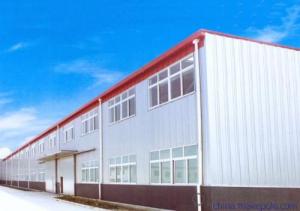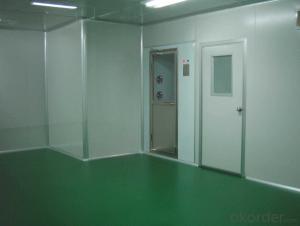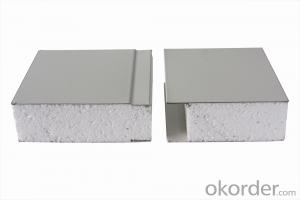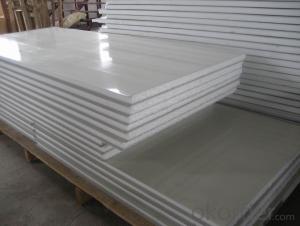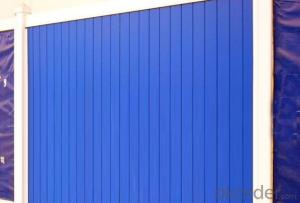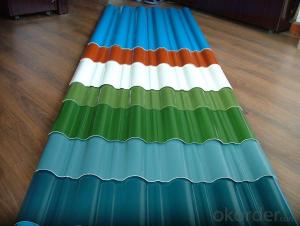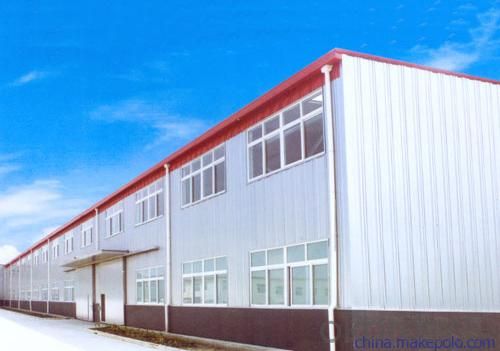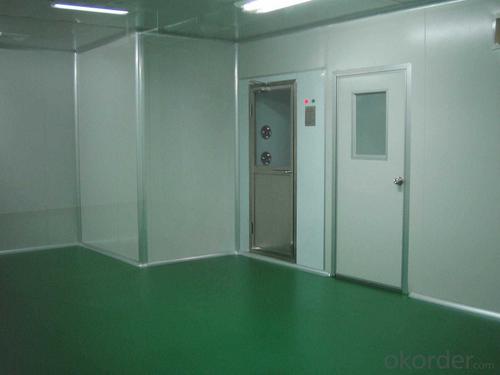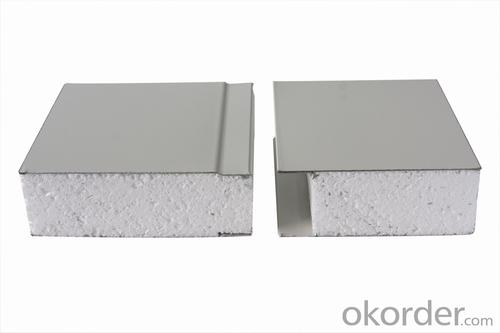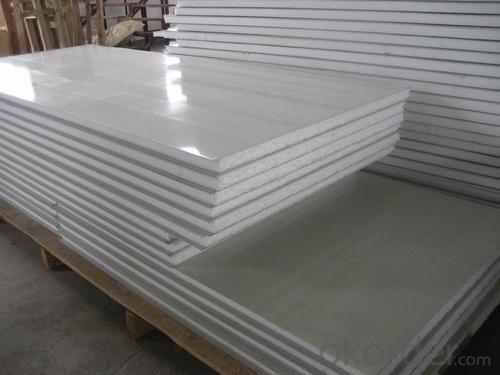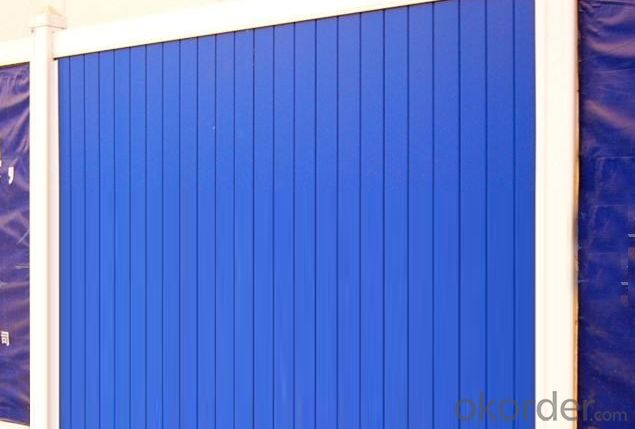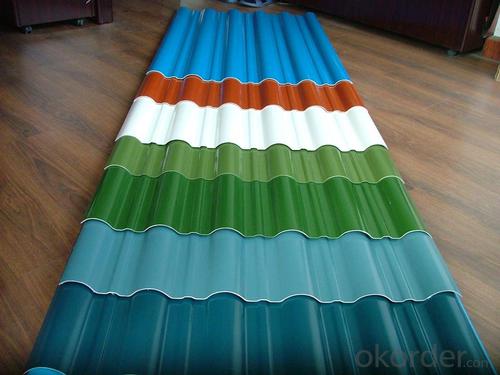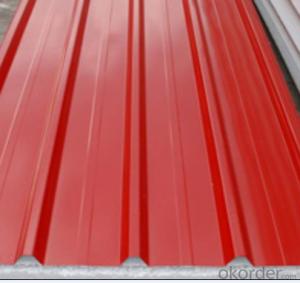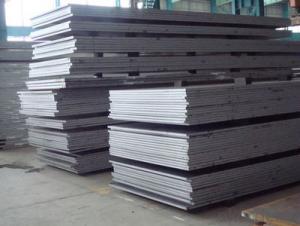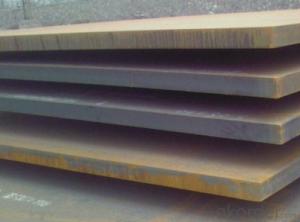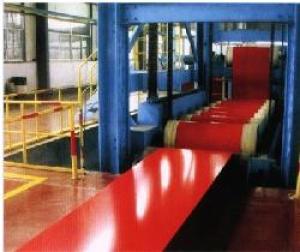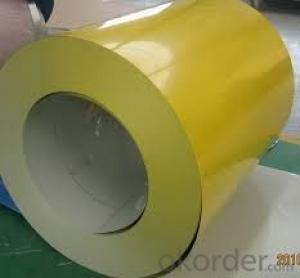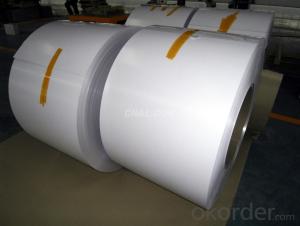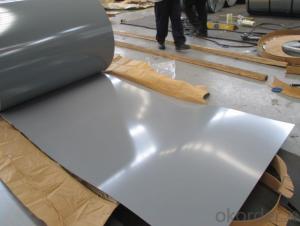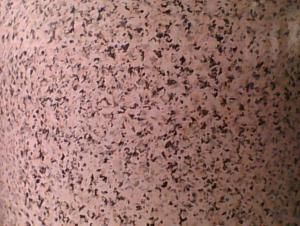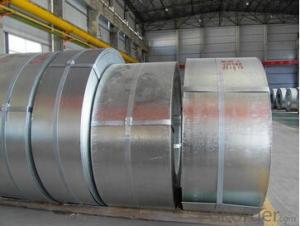JIS G3312/ASTM A755 Prepainted Steel Coil To European Union Market Without Anti-Dumping Tax
- Loading Port:
- China main port
- Payment Terms:
- TT OR LC
- Min Order Qty:
- 1 m.t.
- Supply Capability:
- 1 m.t./month
OKorder Service Pledge
OKorder Financial Service
You Might Also Like
Quick Details
| Standard: | ASTM,JIS | Grade: | CGCC | Thickness: | 0.20mm to 1.20mm |
| Place of Origin: | Zhejiang China (Mainland) | Brand Name: | CNBM | Model Number: | PPGI0303 |
| Type: | Steel Coil | Technique: | Cold Rolled | Surface Treatment: | Galvanized |
| Application: | home appliance | Special Use: | Silicon Steel | Width: | 914/1000/1219/1200/1250mm |
| Length: | in coil | Color: | according to RAl card | HS code: | 72107000 |
| International export market: | North America, South America,Europe, Africa, Oceania, Mid East and etc | Color paint coated: | top:15-25um,back:5-10um | Inner diameter: | 508mm or 610mm |
| Single coil weight: | 4-6mt |
Packaging & Delivery
| Packaging Detail: | standard export seaworthy package. wrapped by plastic film and waterproof paper, and then fastened on wooden pallet.Or according to clients' requirement. |
| Delivery Detail: | 20-25 days after receive T/T deposit or L/C |
Specifications
1>Thickness:0.2-1.2mm
2>Zinc coating: 60-275gr/m2
3>Paint coating : 5+25um (top), 5-8um (back)
4>Paint:Beckers
5>Color:RAL
Description:
Products | JIS G3312/ASTM A755 Prepainted Steel Coil To European Union Market Without Anti-Dumping Tax |
Width | 914/1000/1219/1200/1250mm or accoding to clients' requirement |
Thickness | 0.20 ---1.20mm |
I.D. | 508mm/610mm |
Weight Per Coil | 4-6tons |
Paint Brand | Beckers |
Paint Thickness | 15-25micron at top,5-10micron at reverse |
Zinc coating | 40-275g/m2 |
Standard | ASTM A755M/JIS G3312 |
Steel grade | CGCC |
Usage | home appliance,building materials,roof system,etc. |
MOQ | 25 tons |
Quality | approved by SGS |
Productivity | 100,000 Metric ton / year |
Key to success | advanced technique and good service and low price |
Authentification | ISO9001:2008 |
Market | North/South America, Europe, Asia,Africa,Mid East,ect. |
Packaging | wrapped by plastic film and waterproof paper, and then fastened on wooden pallet.Or according to clients' requirement. |
Port | Shanghai or Ningbo |
Delivery term | FOB / CIF/ CFR |
Delivery time | In 20-25 days after receipt of deposit or L/C |
Payment term | 30%T/T down payment,balance before shipment or irrevocable L/C at sight |
- Q: Can the steel sheets be used as a magnetic surface?
- Yes, steel sheets can be used as a magnetic surface.
- Q: What is the maximum size available for steel sheets?
- The maximum dimensions of steel sheets can differ based on the type and grade of steel used and the manufacturing capabilities of the supplier. Generally, steel sheets can be produced in sizes ranging from small sheets measuring a few inches in width and length, to large sheets measuring several feet or even meters in width and length. The transportation and handling restrictions can also affect the maximum size of steel sheets available, as larger sheets might be harder to transport and manipulate. To determine the maximum size of steel sheets that fit your specific needs, it is advisable to consult with a steel supplier.
- Q: What are the weight considerations for steel sheets?
- Weight considerations for steel sheets vary depending on the specific application and desired outcomes. Here are a few key points to consider: 1. Thickness: The thickness of a steel sheet greatly affects its weight. Thicker sheets generally weigh more, while thinner sheets weigh less. It is important to choose a thickness that meets the structural requirements of the project while considering weight limitations. 2. Strength requirements: Different applications require steel sheets of varying strength levels. High-strength steel sheets are often thicker and heavier, while lower strength sheets can be thinner and lighter. Understanding the strength requirements of the project is crucial in determining the appropriate weight of the steel sheets. 3. Transportation and handling: The weight of steel sheets impacts their ease of transportation and handling. Heavier sheets require more labor and equipment for lifting, loading, and unloading. Moreover, transport vehicles have weight limits that need to be considered when selecting steel sheet sizes. 4. Structural limitations: The weight of steel sheets can affect the overall structural design. In some cases, lighter sheets may be preferred to reduce the load on supporting structures. However, in other scenarios, heavier sheets may be necessary to provide the required strength and stability. 5. Cost considerations: The weight of steel sheets can also impact the overall cost of a project. Heavier sheets typically cost more due to the increased material required and the additional handling expenses. Therefore, it is essential to strike a balance between weight, cost, and performance to optimize the project's budget. Overall, weight considerations for steel sheets are crucial in determining the appropriate thickness, strength, transportation requirements, structural design, and cost-effectiveness of a project. By carefully evaluating these factors, one can select steel sheets that meet the specific needs while ensuring the optimal weight for the desired outcome.
- Q: Are steel sheets resistant to water or moisture damage?
- Yes, steel sheets are generally resistant to water or moisture damage due to their non-porous nature. However, prolonged exposure to water or moisture can lead to corrosion over time if the steel is not properly protected or coated.
- Q: Are the steel sheets resistant to impact or bending?
- In general, steel sheets display resistance to both impact and bending. Steel possesses exceptional strength and durability, rendering it less susceptible to external forces like impacts or bending. This is attributed to the material's capacity to absorb and disperse applied energy, leading to minimal deformation or harm. Nevertheless, the extent of resistance to impact and bending may fluctuate based on factors such as sheet thickness, steel type, and any supplementary treatments or coatings that have been applied.
- Q: Are steel sheets suitable for data center infrastructure?
- Indeed, data center infrastructure can rely on steel sheets. The utilization of steel sheets in the establishment of data centers is prevalent because of their exceptional robustness, longevity, and resistance to fire. Furthermore, they furnish essential support for the infrastructure, encompassing server racks, cabinets, and raised flooring systems. Not only do steel sheets safeguard data center equipment against potential dangers such as electromagnetic interference (EMI) and physical harm, but they can also be conveniently tailored and adapted to suit the precise demands of a data center. This adaptability renders them a favored option for constructing data center infrastructure.
- Q: Do steel sheets require any surface treatment before installation?
- Yes, steel sheets generally require surface treatment before installation to prevent corrosion, improve paint adhesion, and enhance their overall durability and longevity. Common surface treatments include cleaning, degreasing, priming, and applying protective coatings such as galvanizing or powder coating.
- Q: Can steel sheets be used for electrical transformers?
- No, steel sheets cannot be used for electrical transformers as they do not possess the necessary magnetic properties required for efficient transformer operation. Laminated iron cores are typically used in transformers to minimize energy losses and ensure proper magnetic flux.
- Q: Are steel sheets suitable for manufacturing elevator doors?
- Yes, steel sheets are suitable for manufacturing elevator doors. Steel is a strong and durable material that provides excellent structural integrity, making it ideal for ensuring the safety and security of elevator passengers. Additionally, steel sheets can be customized to meet specific design requirements and can be finished in various colors or patterns to enhance the aesthetic appeal of elevator doors.
- Q: What are the common thicknesses for cold-rolled steel sheets?
- The common thicknesses for cold-rolled steel sheets typically range from 0.4mm to 3mm.
Send your message to us
JIS G3312/ASTM A755 Prepainted Steel Coil To European Union Market Without Anti-Dumping Tax
- Loading Port:
- China main port
- Payment Terms:
- TT OR LC
- Min Order Qty:
- 1 m.t.
- Supply Capability:
- 1 m.t./month
OKorder Service Pledge
OKorder Financial Service
Similar products
Hot products
Hot Searches
Related keywords
